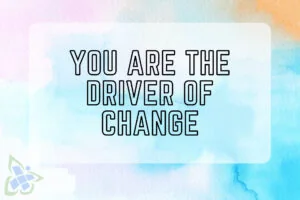Elegance Meets Healing in Cape Town's Serene Foothills
What factors make a luxury addiction treatment centre near Cape Town an appealing choice for those seeking recovery?
Most people picture rehab as a tough, clinical place, metal beds, hospital lighting, maybe a group of people sitting in a circle sharing their stories over weak coffee. But in Cape Town, rehab has taken on a new shape. Ocean views, private chefs, infinity pools, yoga on the deck. Recovery, it seems, now comes with room service.
Across South Africa, particularly in Cape Town, “luxury rehab” has become a booming industry. These facilities promise privacy, serenity, and world-class care. They’re tucked away in leafy suburbs or perched in the shadow of Table Mountain, offering “healing environments” that look more like boutique hotels than clinics. But while the view may be beautiful, the questions underneath are ugly. Has addiction treatment become another luxury commodity? Are we treating people, or selling comfort to those who can afford it?
The Business of Recovery
Addiction treatment has quietly turned into a thriving global business, and South Africa is one of its favourite addresses. Wealthy patients from around the world, especially from the UK, Europe, and the Middle East, now fly to Cape Town for recovery. They come chasing the same things tourists do, beautiful landscapes, lower prices, and discretion.
Luxury rehab packages can cost more than R150,000 a month, and for that, you get more than therapy. You get an ocean breeze, personal trainers, horseback therapy, fine dining, and a staff-to-patient ratio that makes it feel like a retreat. There’s nothing wrong with wanting comfort during recovery, detoxing is brutal, and the body needs care. But comfort and healing aren’t the same thing.
You can have the most stunning mountain view in the world, but if you’re not confronting the truth of your addiction, it’s just another form of escape. As one therapist put it bluntly, “You can’t out-cater trauma.”
The Myth of the Perfect Place to Heal
The idea of a “perfect place” to recover sounds appealing, peaceful surroundings, nutritious food, compassionate staff. But healing isn’t about peace; it’s about pain. It’s about stripping away the layers of denial, shame, and avoidance that addiction builds. That process rarely feels comfortable.
Luxury rehabs often sell an image of “gentle transformation,” but the truth is that recovery hurts. It’s detox sweats, shaking hands, sleepless nights, guilt, therapy tears, and the terrifying realisation that you’ve got to rebuild your life one day at a time. None of that can be softened by Egyptian cotton sheets or ocean views.
Comfort can easily become distraction. You start focusing on the amenities, not the work. You get addicted to the illusion of progress, the feeling of healing, without doing the digging it takes to stay sober. Some clients even relapse the moment they leave, because what they experienced wasn’t treatment, it was recovery tourism.
The real question isn’t where you recover. It’s whether you’re ready to recover.
Inside the Cape Town Rehab Boom
Cape Town has quietly become one of the world’s top rehab destinations. It offers world-class medical professionals, international accreditation, and relative affordability compared to the UK or US. It’s not uncommon to find facilities run by psychiatrists, psychologists, dieticians, and counsellors trained abroad.
The environment helps, the open skies and mountain air are genuinely therapeutic. But alongside the genuine centres doing life-changing work, there’s also a growing wave of “luxury” operations that market themselves more like hotels than clinics. Their websites feature drone footage, chef-curated menus, and massage packages, often with vague mentions of “evidence-based care.”
For someone desperate for help, it’s easy to get sold on the promise of serenity. But serenity doesn’t cure addiction. Evidence-based therapy does. Structure does. Accountability does. The real healing in recovery isn’t found in the view, it’s found in the confrontation, with yourself, your choices, and your pain.
Behind the Brochure, The Real Work
Not all luxury rehabs are bad. Many are genuinely excellent, and their facilities can help patients feel safe enough to do the hard work of recovery. But the marketing hides the truth, recovery is work. It’s not a retreat. It’s not a detox holiday.
Real treatment involves a structured, evidence-based programme that deals with every part of addiction, medical, psychological, and social. It’s group therapy where denial gets called out. It’s sitting in front of a counsellor and saying, for the first time, “I don’t know who I am without drinking.”
It’s messy and uncomfortable and emotional. And it works, not because of the décor, but because of the honesty it demands.
One Cape Town clinician put it perfectly, “The hardest work in recovery isn’t done on the yoga mat. It’s done in the therapy room when someone finally stops lying to themselves.”
Rehab that focuses too much on lifestyle risks missing that. You can heal your body with massages and healthy food, but if you don’t face the core emotional wounds that drive addiction, you’re just swapping one kind of comfort for another.
Privilege and Perception
Addiction doesn’t care how much money you have, but access to treatment does. The truth is, there’s a harsh divide between how we treat addiction in the rich and the poor.
The middle-class addict is “seeking help.” The working-class addict is “a problem.” The wealthy addict goes to rehab with a mountain view, the poor addict detoxes in a public hospital corridor. The same disease, two different levels of compassion.
We still carry the stigma that addiction equals failure, unless you can afford to make it look like self-improvement. The “rehab retreat” has become a status symbol in some circles, a way of saying, “I had a crisis, but I handled it privately and tastefully.”
That’s not recovery. That’s public relations.
Real recovery isn’t glamorous. It’s raw. It’s terrifying. It’s admitting you’ve destroyed things you loved and trying to rebuild them without numbing the pain. And that process belongs to everyone, not just those who can afford imported linens.
Where Luxury Works, and Where It Fails
Luxury rehab isn’t the enemy. It can make the early stages of withdrawal safer and more humane. Privacy can protect high-profile clients from stigma and allow professionals to recover without public pressure. Comfort can help patients focus on healing instead of fear.
But when luxury becomes the point, when it replaces accountability, it fails. Addiction thrives in denial, and luxury often feeds denial. It tells people they can recover without discomfort. It whispers, “You’re not like the others.” But that’s exactly the kind of thinking that keeps people sick.
Addiction doesn’t care who you are. The disease doesn’t stop at the gates of a private estate. Recovery, no matter how expensive the setting, demands surrender. You can’t buy your way around that.
As one former patient said, “The food was amazing, the beds were soft, but I still had to face myself. The scenery doesn’t do that for you.”
Luxury can make you sober for a while. Honesty is what keeps you that way.
Choosing a Clinic That Actually Helps
If you’re looking for help, for yourself or someone you love, here’s what actually matters.
Look for credentials, not chandeliers. The right rehab is led by medical and psychological professionals, psychiatrists, psychologists, counsellors, and registered nurses. Ask about evidence-based therapies: Cognitive Behavioural Therapy, 12-Step facilitation, trauma work, family counselling. If a facility talks more about the view than the treatment model, that’s a red flag.
Ask about aftercare. The real test of a good rehab is what happens once you leave. Without continued support, therapy, groups, check-ins, relapse is common. Recovery doesn’t end when the invoice does.
Finally, find a place that tells the truth. The best rehabs don’t promise a quick fix. They promise hard work, guidance, and honesty. And that’s what We Do Recover exists to help families find, not the prettiest clinic, but the one that actually helps people stay clean.
Sobriety Is Earned
The rise of luxury rehab says a lot about our culture. We want comfort in everything, even in our pain. We want healing to look beautiful, not messy. But recovery isn’t Instagrammable. It’s not always calm, and it doesn’t always happen in linen sheets.
The truth is, the only luxury that matters in recovery is time, time to heal, time to rebuild trust, time to face the truth.
If you can afford a beautiful rehab, that’s fine. Use it well. But don’t confuse comfort with cure. Don’t mistake privacy for progress. Because real recovery isn’t something you check into, it’s something you fight for, day after day, long after you’ve left the gates.
If you’re reading this and wondering whether you or someone you love needs help, don’t wait for the perfect clinic, the perfect timing, or the perfect setting. Just reach out. The sooner you start, the sooner you start getting honest.
You can heal anywhere, a mountain-view clinic, a small town rehab, a quiet therapy room, as long as you’re willing to face yourself.
Real recovery doesn’t happen in luxury. It happens in honesty.
If you or someone you love is ready to take that first step, contact We Do Recover. We’ll help you find the right clinic, not the prettiest one, but the one that actually saves lives.

Many people struggle to beat alcoholism by themselves. They need some sort of help in…

Early Recovery Is Not About Willpower Most people outside the addiction field still believe that…

The Line Is Thinner Than You Think In South Africa you can go from a…